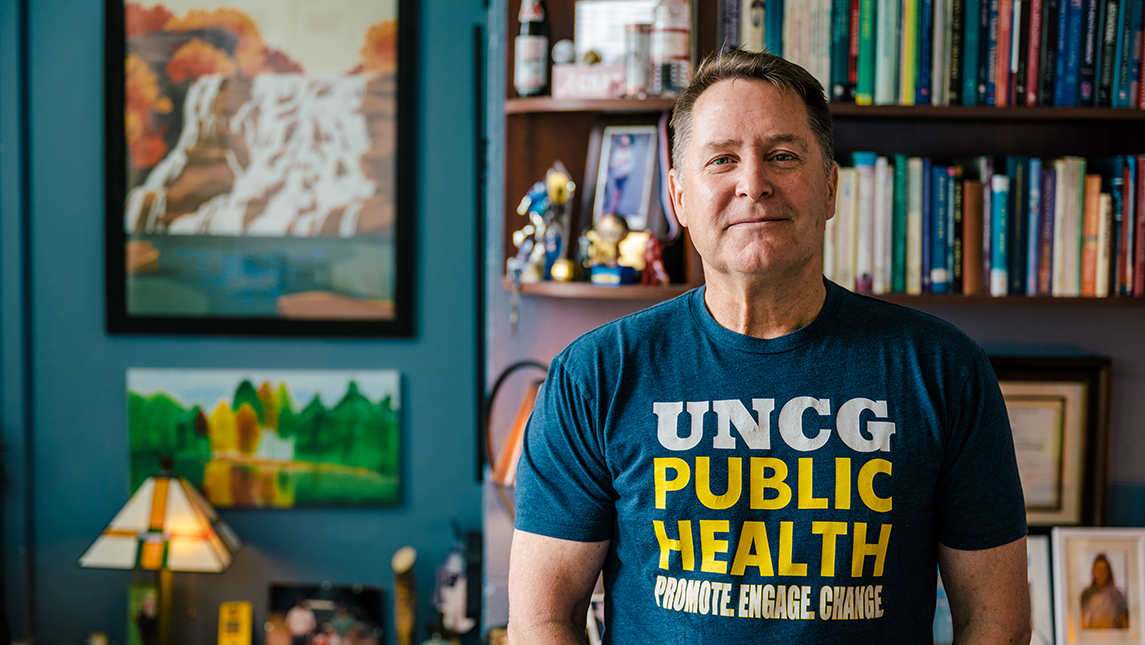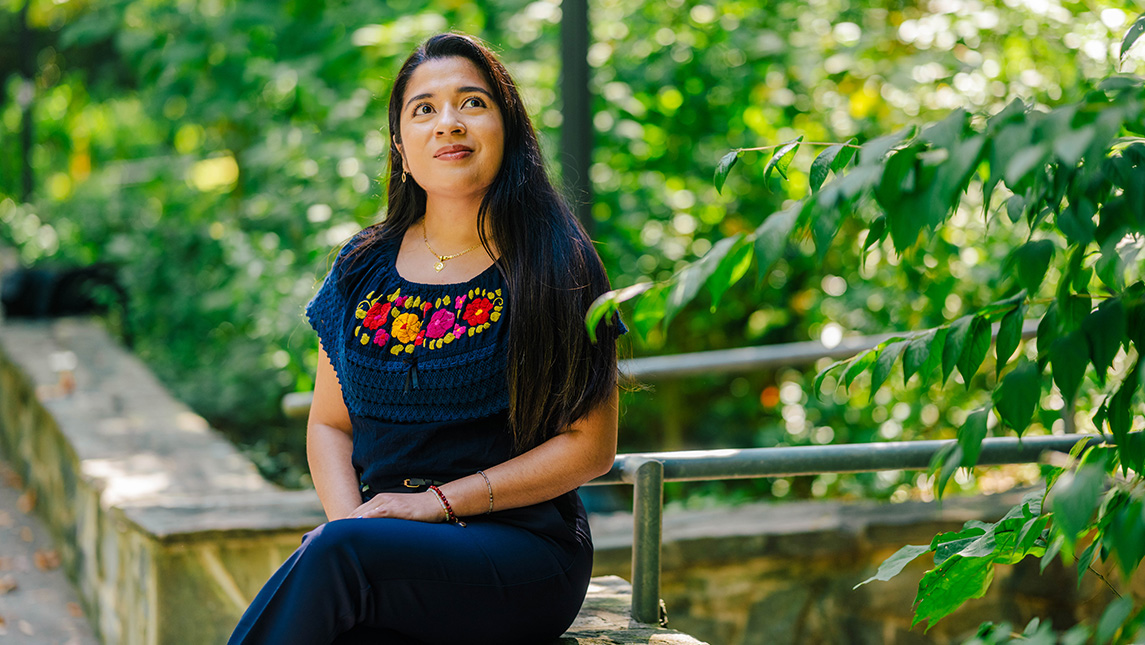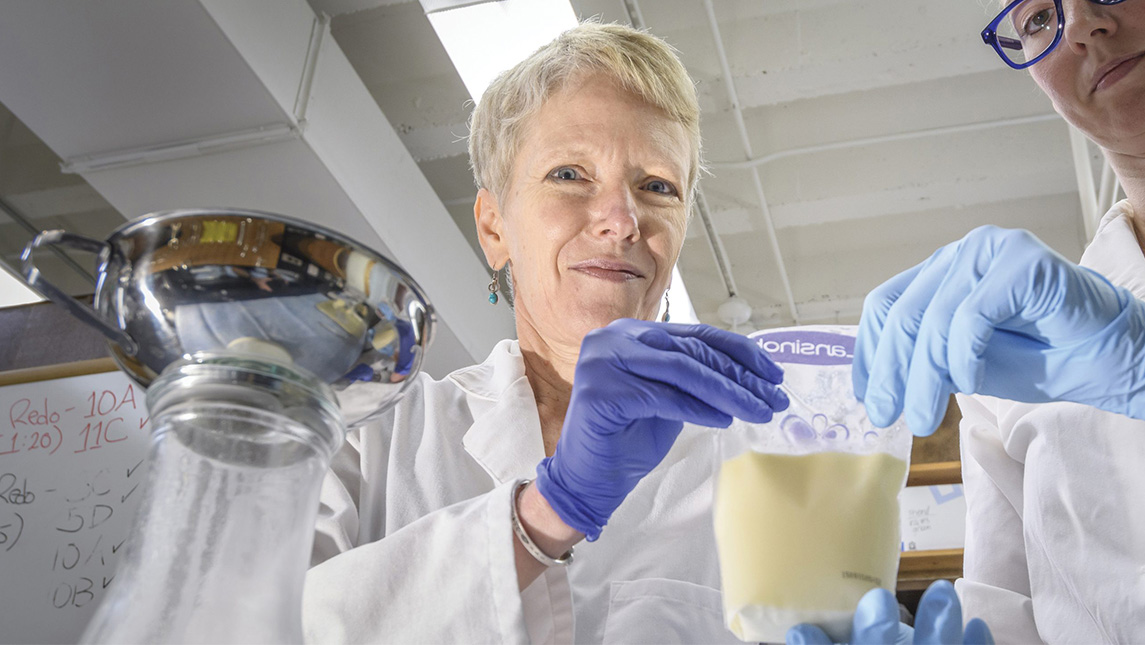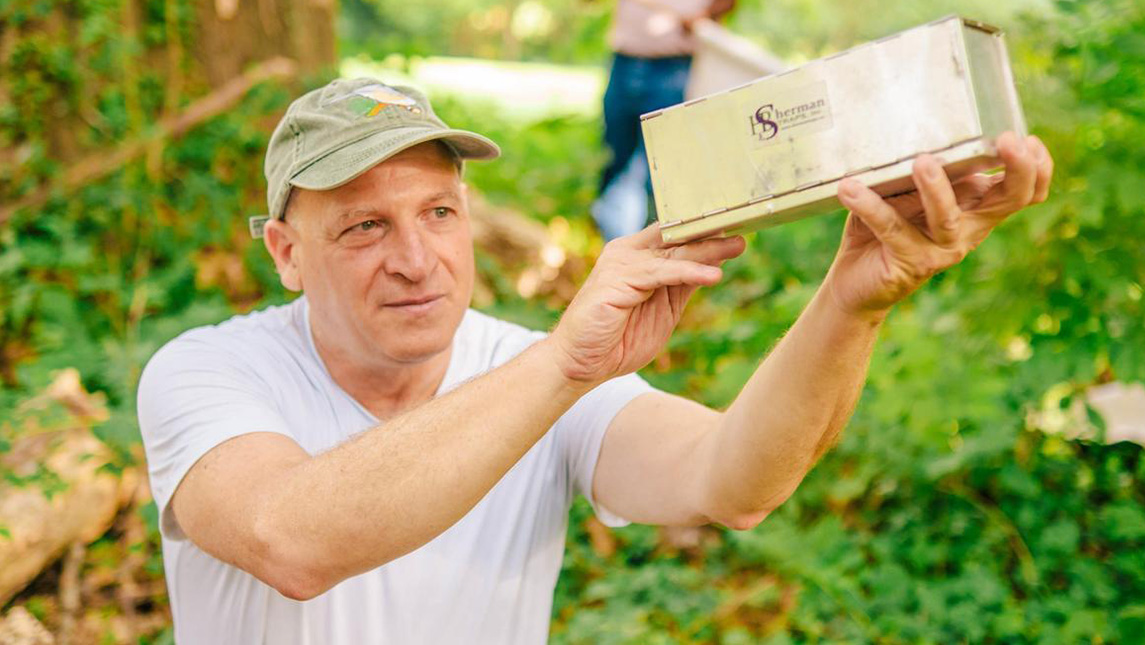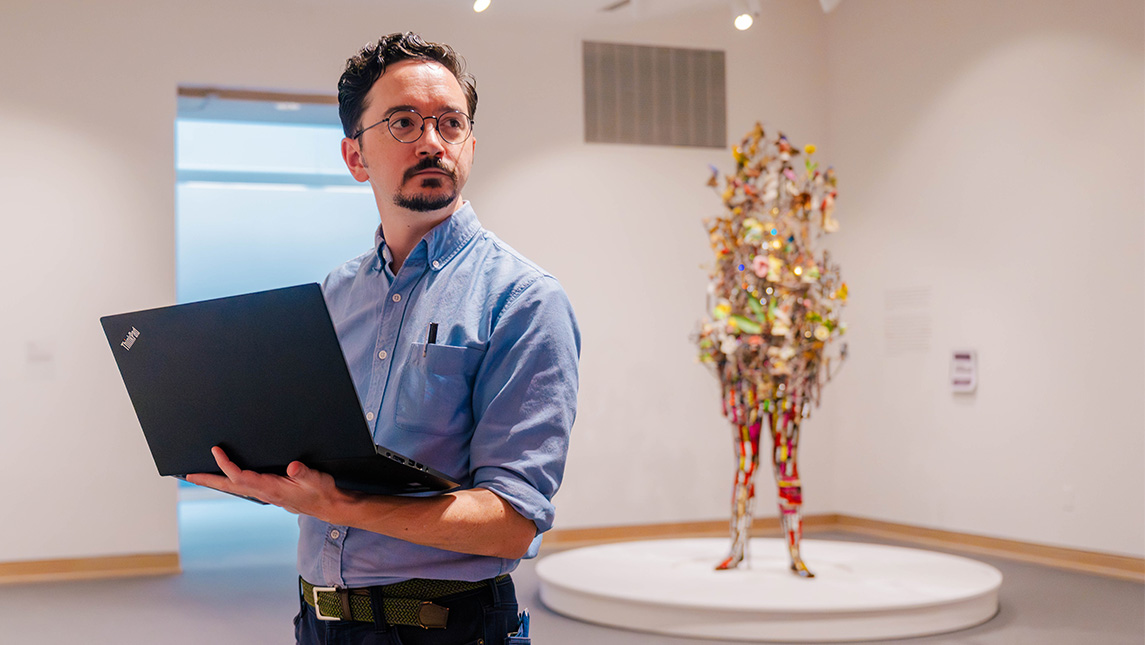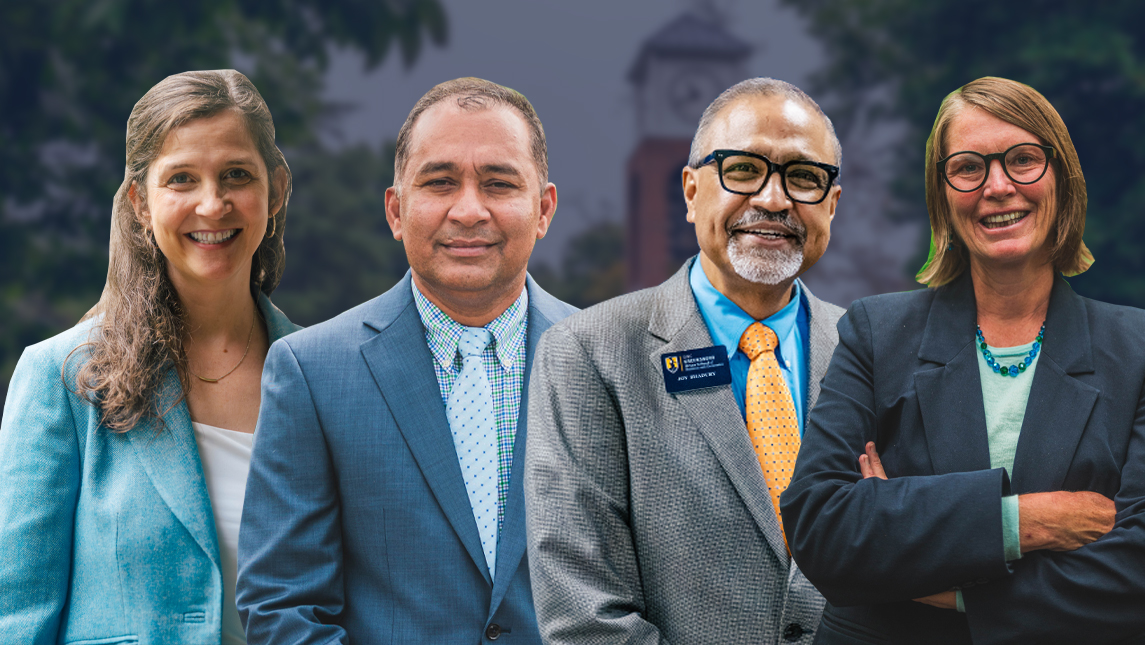Rebecca Mathews believes anyone can save a life
When leading a teacher training on suicide prevention in a rural district school, UNC Greensboro Clinical Assistant Professor Rebecca Mathews was met with some healthy skepticism.
“One teacher said, ‘I’m never going to use this. I’m not a counselor, so no student is going to talk to me about suicide,” Mathews says.
Though reluctant, the teacher finished the training. A few days later, he sent Mathews a message saying one of his students had shown signs of suicide, and no counselor or administrator was available. Because the teacher was trained, he asked the right questions to immediately address the student’s crisis and was able to get the student the support and treatment they needed.
Working in the UNCG School of Education’s Department of Counseling and Educational Development (CED), which is consistently ranked third nationally and first in North Carolina as the top graduate program, Mathews trains future and current counseling practitioners, teachers, and community leaders in suicide prevention, teaching them to recognize warning signs and how to intervene.
Her experience with the teacher in the rural district is common. Often within weeks of a training session, she will get a phone call or an email from one of the participants who says that the training allowed them to recognize a student or friend was having suicidal thoughts and then take the right steps to help them.
“Anybody can save a life,” she says. “To me, the most important work that I do is around helping. It really is life-saving work, and I consider it an honor to help prevent suicide through research and training.”
Finding a different answer
“I fell in love with helping someone experience hope,” says Mathews, who, in addition to teaching, advises K-12 teachers, educational administrators, and medical professionals about suicide prevention. “People get better when they have support and can work through hard things without feelings of inner or external judgment.”
That lifelong desire to help people inspired Mathews to study counseling and psychology. While earning her doctorate in her home state of Texas, she worked in criminal justice, in-home counseling, and a hospital setting with kids and teens struggling with suicidal thoughts.
“Suicide is not the problem, but the person’s answer to what they’re going through,” she says. “If we can help them find a different answer, we remove the problem of suicide.”
After building an 18-year career as a counselor, consultant, and educator in her community and hospitals, Mathews was called to teach and improve training for colleagues in her field. In 2020, she joined the faculty in UNCG CED, determined to make an impact on future counselors.
“The community deserves good, ethical, solid counselors, and I wanted to be part of the pipeline that supported their development,” she says.
Training toward prevention
Mathews began her teaching career with UNCG training master’s students to become mental health counselors. She soon became a counselor educator with the North Carolina Physicians Health Program (NCPHP). Through NCPHP, she provides suicide prevention training and conducts research related to the prevalence of suicide among physicians in North Carolina. “When they graduate, we want them to be ready to help clients, whoever may walk in their door.”
“Dr. Mathews’ dedication to helping persons dealing with suicidal ideation and teaching others how to prevent the tragedy of suicide are clearly a calling for her as evidenced by her academic work,” says Joseph P. Jordan, CEO of NCPHP. “Her work with NCPHP has sparked a national movement to recognize and address the tragedy of physician and other medical professional suicides. She is truly a catalyst of state and national change in this area.”
Her work also extends to training for K-12 schools about trauma and suicide prevention.
“We have a wonderful community of schools where professionals are asking for help. We’ve developed a training on what trauma looks like, how it shows up in the classroom, and how to interact in ways that are helpful,” Mathews says.
Mental health challenges are alarmingly prevalent in young adults. According to the American Psychological Association, more than 20% of teens have considered suicide.
“We’re seeing increased rates related to anxiety, depression, and suicidal thoughts and behaviors,” she says. “It’s a challenging time to be a kid or a teenager, and to be the parent or teacher who’s trying to figure out how to be supportive and helpful in a world of bullying that follows them home through social media.”
One of the most effective trainings she administers is QPR – question, persuade and refer – which helps individuals who are not mental health professionals recognize signs of suicide and intervene.
“An example of an intervention is saying, ‘Often, when a person feels the way you’re feeling, they might wish they could go to sleep and not wake up. Do you ever have those thoughts?’ This opens the door to a conversation. You can listen and persuade them to get help, then connect them to a medical professional,” she says.
In addition to suicide prevention trainings in schools and communities, Mathews worked with former UNCG colleague Anita Faulkner to develop the Trauma-Informed Professional Practice (TIPP) for Educators and Mental Health Professionals, developed in partnership with the North Carolina Academy for Stress, Trauma and Resilience (NCA-STAR). The online series includes video modules for practitioners that help participants better understand trauma, trauma reactions, and the physiological effects of trauma.
“Dr. Mathews brings a kind, compassionate, and strong voice of guidance” to all areas of her work, says Anita Faulkner, former director of NCA-STAR who now owns Family Solutions, a local community mental health agency.
“Most people want to relieve suffering when they see it,” says Mathews, “but suicide is a hard topic and feels overwhelming. I want to help people build confidence so they can be effective in those moments and know how to help save lives.”
If you or a loved one struggles with suicidal thoughts, help is available through calling or texting 988.
Story by Mary Daily
Photography by Sean Norona








